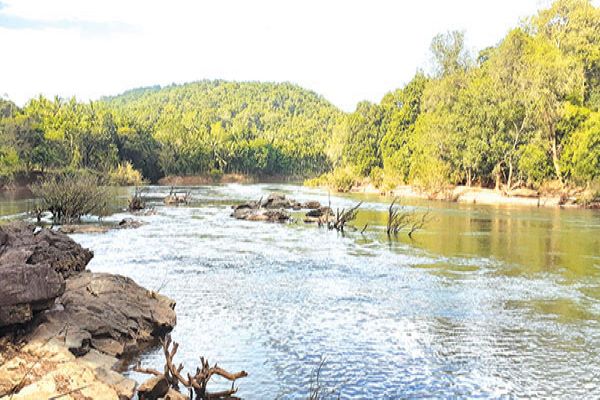Mhadei diversion will impact riverine, estuarine, and coastal ecosystems, that would lead to erosion of beaches, reduced freshwater flow, and decreased biodiversity

The Mhadei river is a unique biological treasure trove that reinforces three life-supporting landscapes – The Western Ghat forests, mid land plateau, and the coastal plains. Mhadei diversion will impact the riverine, estuarine, and coastal ecosystems, that would lead to erosion of beaches, reduced freshwater flow, and decreased biodiversity. Protecting the Mhadei basin is critical for Goa’s water security. Although the CRZ Notification was enacted to protect the coastal areas, the diversion will undermine this protection.
The connecting thread which makes Goa a unique and biological treasure trove is the river Mhadei. This river carries water, chemically it is H2O, which essentially describes Goa’s landmass, Hill to the Ocean (H2O). The diversion of the west-flowing Mhadei, though happening in Karnataka, will severely impact Goa’s three life-supporting landscapes: the Western Ghat forest, mid land plateau and the coastal plains. These geographical features are not only beautiful, putting Goa on the world tourist map, but integral to Goa’s ecological, social, cultural life and economy.
The diversion of the Mhadei will substantially reduce the natural fresh flow of the river through Goa, which will change the riverine, estuarine, and coastal ecosystem leading to erosion of the beaches and increased salinity. The Mhadei estuary is a major breeding and feeding ground for fish, aquatic species, and birdlife. The loss of freshwater from the river will adversely impact the biodiversity and productivity of the forest, farms and fishing areas triggering socio-economic insecurity for the villages all along the river and the coastal community. Our wise ancestors, knowing fully, its ecological, social, and cultural values, never attempted to either divert or stop its natural flow.
Climate change is already impacting the coastal regions with increase in the number and intensity of extreme weather events. To safeguard lives and livelihoods, it is essential that our forest, river, estuarine ecosystems especially, the mangroves, khazans and sand dunes are protected. Increase in the salinity and sea water ingression due to the river water diversion will negatively impact the hydrodynamics, species composition, ecosystem services, economic values, and productivity.
Mangroves and mudflats, also referred to as tidal forests, are important bio-shields. They protect us from natural calamities, help reduce soil erosion, sequester carbon thereby mitigating climate change impacts, and are critical for securing offshore coral reefs and fisheries.
More importantly, they are nursery grounds for large marine and coastal lifeforms. Coastal Regulation Zone (CRZ) notification classifies mangroves, khazans, sand dunes and coral reefs as CRZ I, that is, ecologically sensitive areas. Khazans are Goa’s heritage marvel. They are our rice bowls and act as flood protection zones.
Sand dunes are important freshwater recharge grounds, critical for coastal water security. The diversion of the Mhadei river will reduce the freshwater availability and flow to these ecosystems and potentially degrade these habitats and make the coast more vulnerable to coastal storm surges and flooding. This will impact our food and nutrition, our fish, curry and rice, pushing us to hunger, migration, health issues and cultural poverty.
The Coastal Regulation Zone (CRZ) Notification is enacted to protect and safeguard the coastal areas, particularly the fabric of ecological, social and cultural aspects that give Goa its unique characteristic and culture. This very intension of offering the protection these landscapes is undermined due the river water diversion, therefore, requires to be examined from this angle also.
Water security is crucial both for Karnataka and Goa. However, short term measures of river diversion by Karnataka without investigating alternative solutions and investment for water security will not solve the drinking water needs but just treat the symptoms and cause a humanitarian and ecological crisis in Goa.
The approach to solve this problem must be evidence-based, scientific guided by human ethics and values, and the recognition of the need to protect the Mhadei river basin and the Western Ghats for their intrinsic value and their role in the lives and livelihoods of the dependent communities.
It is crucial that an interdisciplinary team of experts who can study the impacts and explore the scope from a socio-ecological, legal perspective overcoming political and administrative boundaries and truly, honestly, scientifically represent the actual picture and enable true justice to the citizens as well as protect the Mhadei river basin and the Western Ghats.